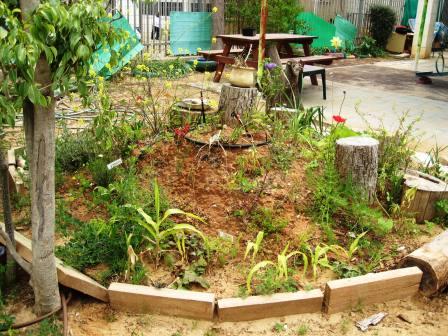In America, 16 people are killed on the job every day and 160 people died today and every day from occupational illnesses. The safety and health regulations for the workplace are extremely lacking. Out of the 30 million employers that exist in the U.S.A., only 5 million of them even report to OSHA - Occupational Safety and Health Administration. This is the federal agency that oversees enforcement of health and safety legislation
[www.osha.gov]. On average, an employer's median fine for a worker death is $3,700, but workers rarely get taken to court at all.
As a citizen of this country, each of us has the power to do something about this. To many of us, these days it seems like the government no longer works for the people... but if we lose hope, change will never happen. Our senators and congressmen work for us, they are the voice of the mass population because we live in a democracy. There is an act that was introduced by Senator Ted Kennedy in April 2004 and it is well overdue. Contact your congressman and tell them it's time to protect America's workers.
A lot of these deaths are due to chemicals in the environment they work in. Take the salon industry for example - nail salons and hair salons use all kinds of chemicals all the time, from nail polish to hairspray to the disinfectants they use. Some of the chemicals include:
Dibutyl Phtalate
[http://www.cosmeticsdatabase.com/ingredient.php?ingred06=701929]
nail polish \ nail treatment \ cuticle treatment
causes negative reproductive outcomes (organ system toxicity), allergies, cancer, endocrine disruption, is neurotoxic, and will accumulate over time in the body
Formaldehyde
[http://www.cosmeticsdatabase.com/ingredient/706587/TOSYLAMIDE%3B%3B_FORMALDEHYDE_RESIN/]
disinfectant \ nail polish \ styling gel
causes cancer, asthma, and reproductive toxicity
Toluene aka
Benzyl Alcohol
[http://www.cosmeticsdatabase.com/ingredient/700697/BENZYL_ALCOHOL/]
nail polish \ hair color \ facial moisturizer \ body wash \ mascara
causes cancer, asthma, reproductive toxicity, neurotoxicity, instant irritation of eyes, lungs, and skin
These three chemicals are knows as the "toxic 3" and little research has been done to find out if there are any synergistic effects of these ingredients in our bodies.
In this country, the FDA loosely regulates the food we eat and we're finding out more and more that there are many problems with our food system even with those regulations. The chemicals that are used in cosmetics, household cleaners, and body products, however, are not regulated at all. Many of the products we use every day in the shower, to do our laundry, brush our teeth, or wash our face have chemicals that can build up in our systems over time and cause an array of health problems. These chemicals can build up in our environments as well and cause an imbalance in soil, water, and air which can harm people and animals as well.
You have the power to make educated decisions about the products you use and be a healthy, informed consumer. Reading the label and finding out what all of those strange sounding ingredients are is the most important thing you can do. To be safe, if you don't know what it is - don't buy it. Your decision effects your personal health as well as the health of Mother Earth.







Buy local, especially local food. Shop at the farmers market where food is grown 30 miles away, or go to the actual farm itself. Large scale agriculture relies so heavily on oil in every sense of it from fertilization (ammonium nitrate) to pesticides to packaging (plastic=oil) to transportation. Farm to plate the average meal travels 1500 miles.
Stop using plastics. Start easy and don't use any plastic shopping bags or bottled beverages or styrofoam containers. Bring your own bag, your own bottle, your own reusable take home container. Then take a bigger step and vow to not by anything that comes in plastic. Stop using "regular" household cleaning products, haircare, lotion, etc. There are very basic ingredients that can be used to do everything around your house. Vinegar kills mold and disinfects so it pretty much cleans everything. Mix it with lots of lemon or lime juice to make it smell nice and the acidity helps remove grease, etc. too.
Most important, ride your bike walk and use public transit if it's available. Stop driving so much! If you're going 5 miles away, take your bike. Before going anywhere, ask yourself if you really need to drive. Put trips together into one big trip rather than going out 3 times a day.
Don't produce so much waste. I'm weening myself off of all city controlled waste pick up, eventually I plan on having no waste taken at all but currently I still have about a 1/2 crate of recyclables a week and one small bag of trash between the three of us in my household. Start a compost to efficiently repurpose food waste. Throw all your used paper in the compost, unless there's a lot of colored ink. If you cook from scratch, this vastly decreases packaging waste.
The possibilities are endless. It's up to us to fight against this ugly consumerism that depends so heavily on oil and coal. It isn't sustainable and we don't have to live like this.